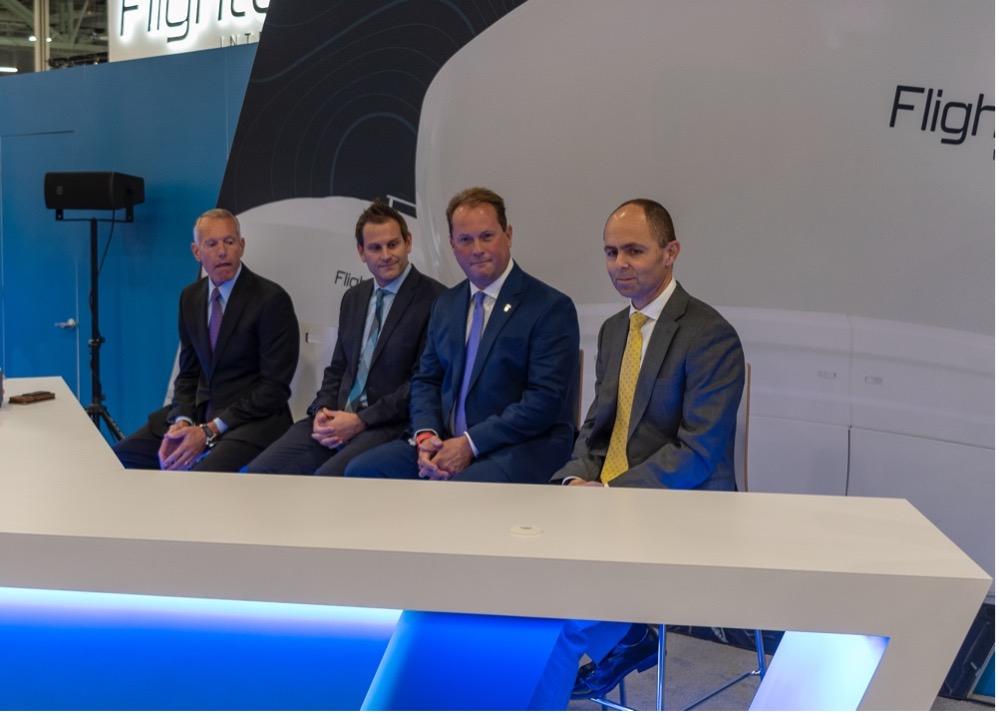
FlightSafety International and GE Digital launched a new partnership to use actual flight data to tailor aircrew simulator training using Corporate Flight Operations Quality Assurance (C-FOQA). FlightSafety clients will begin seeing training tailored to their specific aircraft type and airport destinations as early as next January. The program will take advantage of data from the more than 300 operators and 1,000-plus aircraft that are part of the C-FOQA community.
FOQA data recorders capture data from aircraft flight data recorders for processing to analyze pilot, air traffic control and aircraft maintenance procedures, with the aim of risk mitigation. The system will output tables and graphs that capture unstable approaches, configuration issues, aircraft limitation exceedances and other problems that may have happened too quickly for crews to record any useful data.
“Actual flight data will allow us to tailor training to address safety threats before crews even experience them,” says Brad Thress, president and CEO of FlightSafety International. This type of “evidence-based training” has been a longtime ambition for many simulator training vendors. But, until now, they lacked access to the data needed for a robust system.
Andrew Coleman, president and general manager of GE Digital, says they had a rich database of actionable information that could obviously be used to improve safe flight operations, but did not have the means to make it all happen. Richard Meikle, FlightSafety executive vice president for safety and regulatory compliance, agrees. “If you don’t act on the data, all you have is data,” he says. Meikle called GE Digital earlier this year, and the rest all happened very quickly.
“We aim to train the most prepared pilots in the industry—proficient simply isn’t enough,” says Meikle. “Our partnership with GE Digital will provide evidence of threats to flight operations through the GE Digital Aviation Software data to construct precisely targeted scenarios to enhance safety. That’s much more than just checking boxes to complete requirements. This is a huge differentiator.”
All FlightSafety customers will reap the rewards, even if they are not C-FOQA clients. GE will provide aggregated data, results from the large collection of operator flight data, that has been deidentified. The data can be organized to produce results by aircraft type, operation or location. Let’s say, for example, that you have a small flight department that has been struggling with stable approaches onto short runways. FlightSafety instructors will be able to access all such instances for the same aircraft type and runway lengths to tailor the flight department’s training program. Crews can be exposed to what has been troubling them in a controlled environment, suitable for analysis and correction.
FlightSafety customers who want to go a step beyond this can send their tail number-specific results to help fine-tune the analysis and corrective action. This approach helps those crews who participate in the C-FOQA program garner even more value from this evidence-based approach to training.
Proactive customers have long had the ability to download their C-FOQA results and bring them to school for help solving what has been troubling them. The problem is that doing this relies on the individual instructor’s ability to quickly analyze the data and come up with an ad hoc training program. This new approach builds upon a large database of similar events and gives the instructor time to tailor the training for the crew.
“Train smarter; fly safer,” has been a catchphrase in the industry for decades. The marriage of C-FOQA data and simulator training could very well raise that idea to a new level.





